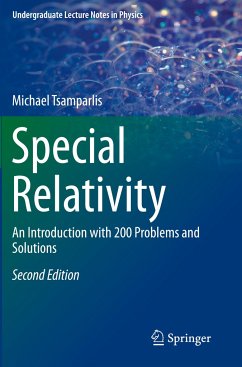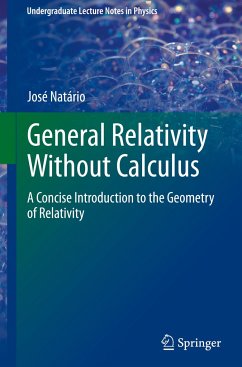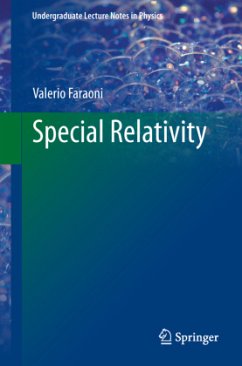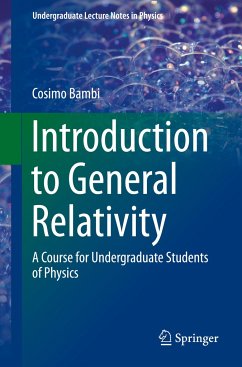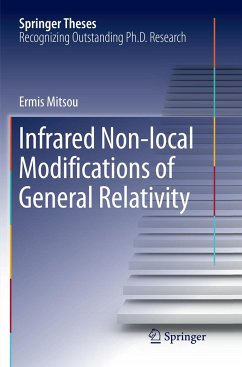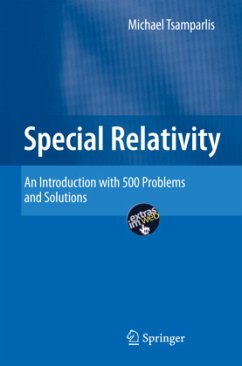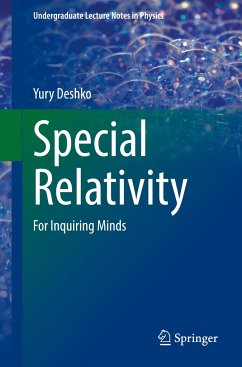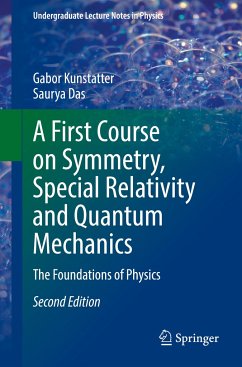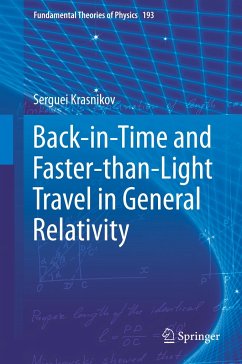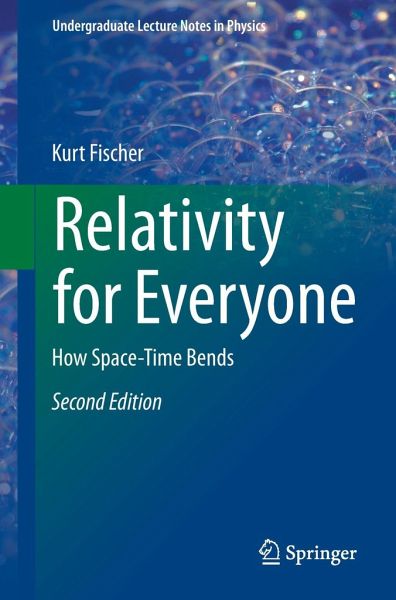
Relativity for Everyone
How Space-Time Bends

PAYBACK Punkte
16 °P sammeln!
This book, now in a revised and updated second edition, explains the theory of special and general relativity in detail without approaching Einstein's life or the historical background. The text is formulated in such a way that the reader will be able to understand the essence intuitively, and new sections have been added on time machines, the twin paradoxes, and tensors. The first part of the book focuses on the essentials of special relativity. It explains the famous equivalence between mass and energy and tells why Einstein was able to use the theory of electrodynamics as a template for his...
This book, now in a revised and updated second edition, explains the theory of special and general relativity in detail without approaching Einstein's life or the historical background. The text is formulated in such a way that the reader will be able to understand the essence intuitively, and new sections have been added on time machines, the twin paradoxes, and tensors. The first part of the book focuses on the essentials of special relativity. It explains the famous equivalence between mass and energy and tells why Einstein was able to use the theory of electrodynamics as a template for his "electrodynamics of moving bodies". General relativity is then addressed, mainly with the help of thought experiments. Reference is made to the previously introduced special relativity and the equivalence principle and, using many figures, it is explained how space-time is bending under gravity. The climax of the book is the Einstein equation of gravity, which describes the way in whichmatterbends space-time. The reader is shown how to obtain the famous Schwarzschild solution. Moreover, the book presents a numerically correct and yet intuitive explanation of the classic effects such as light bending and the advance of the perihelion. The book concludes by explaining the Friedmann model of the big bang and why the theory of gravity does not fit with quantum theory.




